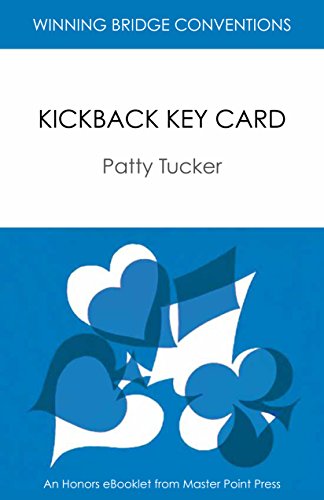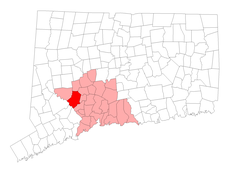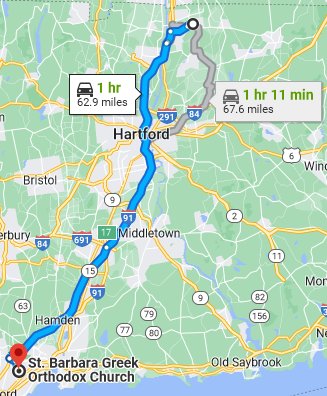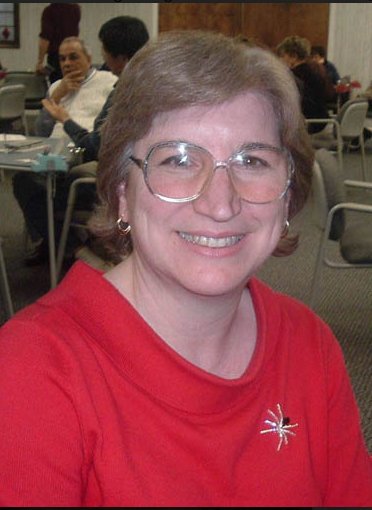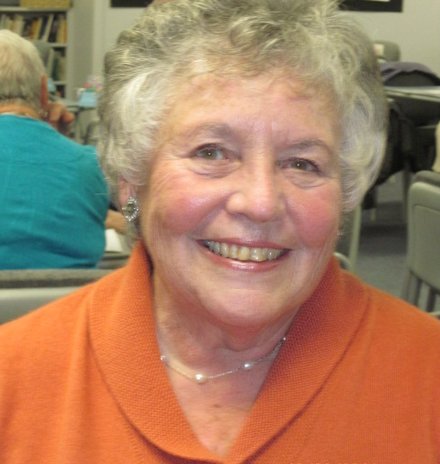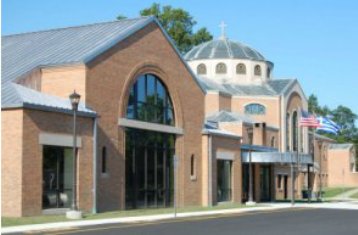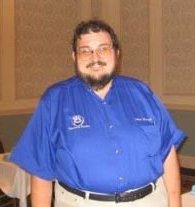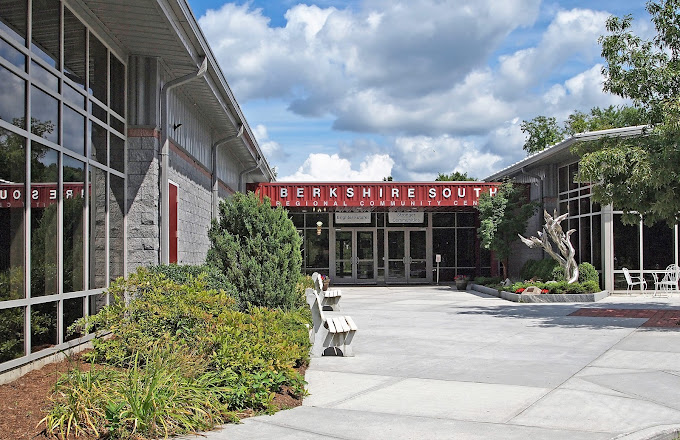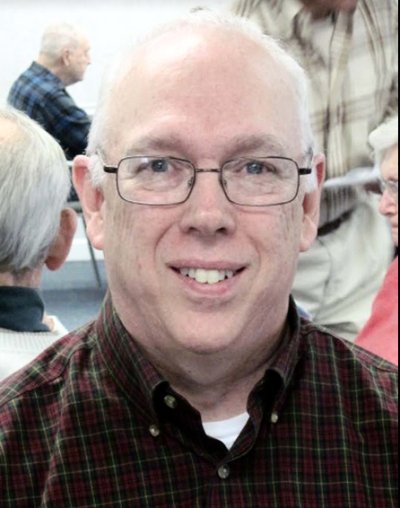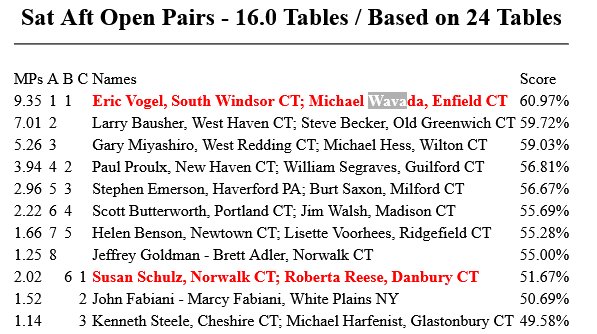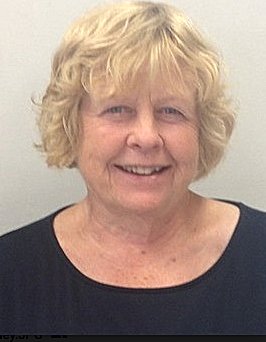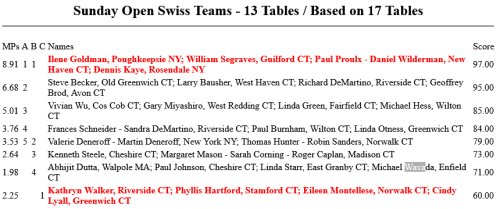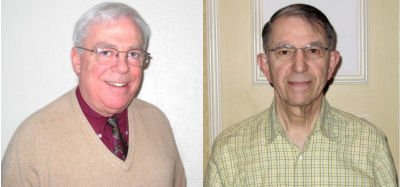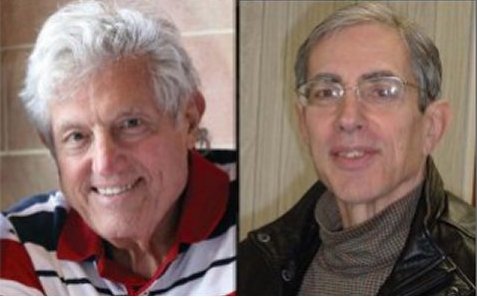Silver points games. Continue reading
Johnston Sectional in March: In January of 2024 Abhi Dutta asked me to play with him at the Rhode Island sectional tournament scheduled for March 2-3. I could not play on Saturday because it was my wife Sue’s birthday, but I agreed to play in the Swiss on Sunday. Abhi was out of town for most of the month of February, but he contacted me late in the month to report that he had acquired teammates. In Johnston I learned that our teammates were the DiOrios, Lou and Megan. I had worked with Megan on the committee for the NABC event in Providence in 2022 (introduced here), and I had played on a team with Lou some time before that.
I was not sanguine about our chances. The partnership of Abhi and me had really recorded only one good result (described here), and that was nineteen months earlier. Our more recent games were not memorable. I also did not remember great successes recorded for either Lou or Megan. The fact that we drew #13 did not raise my hopes, although I always remind people that for Wilt Chamberlain that number was reportedly lucky 20,000 times.2
In the first round Abhi and I played against Al Votolato and someone whom I did not know. The very first hand was weird. Al’s partner opened 1♦ in the second seat; Abhi passed; Al responded 1♠; I passed, and so did Al’s partner! Abhi made the mistake of doubling, which gave Al a chance to bid 2♦, which was the final contract. I asked Al if they had an agreement that allowed his partner to pass his response. He said that he was as surprised as I was. His partner at first defended his pass, but when he understood the situation he said that he did not realize that he had passed.
In the end, even though they were an A team, and we were a B team, we defeated them 29-0, which was a “blitz” that converted to the maximum victory point score of 20. We scored at least one imp on six of the seven hands, and the seventh hand was a push.
In the second round we played another A team, Dan Jablonski and Cilla Borras. They were both very good players whom I had played against several times. I made a horrible mistake in playing a 5♣ contract that Abhi put me in. For some reason I thought that we had nine trumps, not eight. I was therefore quite confident of making the bid when I dropped Dan’s queen on the second round of trumps. A little later, however, I mistakenly led a low diamond from the board. Cilla, who was on my right, ruffed it, and I underruffed even though I had a diamond! I took the requisite eleven tricks, but I was penalized one trick for revoking. Abhi insisted that he warned me when I did it.1
This faux pas cost us 11 imps. We would have lost the match anyway, but our running total of victory points was four fewer—21 as opposed to 25. This was not all bad because we got to play a much weaker B team in the third round, and we beat them 31-0—another blitz.
In the last round before lunch we played a much better B team, Mike McDonald and Tom Floyd. We beat them by 12 imps. At the break we had amassed 56 out of a possible 80 victory points. That was good enough for second place.
I had ordered a salad for lunch. I ate about half of it as well as a bag of chips and a Diet Coke. I sat by myself. I don’t know where my teammates went.
In the fifth round we played the team that was in first place. It included Sheila Gabay and Alan Watson, who had won both sessions of the pairs game on Saturday. The foursome had blitzed both of their last two opponents. Abhi and I played against another very fine pair, Max Siline and Carrie Liu. On the first hand I made 3NT, and our Sheila and Alan had a misunderstanding in their bidding. That was enough for a ten-imp swing, but we would have won the match anyway. The final score was 30-13. Abhi and I had no negative scores at all. I was wondering if it were possible to lose with no negative scores (Yes!), and I was worried that I would find out. I had played against Sheila’s teams at least six or seven times, and I had never won before.
I thought that I played pretty well in the sixth round, but we lost by 16 points to a very good B team. It seemed to me that most of the problems were at the other table. I was most proud of the fact that two of our twelve imps came from when I passed in the fourth seat.
In the last round we played against people whom I did not know. I again passed in the fourth seat, and this time it was worth five imps. Since our margin of victory in this match was only nine imps, I was very surprised to learn that we had won the event by two victory points over both the Siline team and the team from the Hartford Bridge Club (HBC)—Tom Gerchman, Linda Starr, and Bob and Ann Hughes. I was still in a foul mood because at the very end of the last hand Abhi had trumped a trick that I would have won anyway. That mistake cost us six imps, which would have given us two additional victory points. Even so, we brought home 7.15 silver masterpoints.
I did not receive much satisfaction from this result. I had made one huge and embarrassing mistake, and Abhi had made several smaller ones. However, out teammates were very excited about winning. They even asked Tom Gerchman (of all people) to take a photo of the four of us with a cellphone. He had a great deal of difficulty with the assignment.
Was our victory a fluke? I thought so at the time, but after examine the results, I am more inclined to think that we were the best team that day with that set of cards in a fairly weak field. We played all but one of the top teams. We never played against a C team. We beat the top-seeded team decisively in our match with them. We could easily have had quite a few more victory points than we did.
I still had a ninety-minute drive ahead of me. The traffic was slow, and for the first half hour the sun was really brutal even though I had on sunglasses and pulled down the visor as low as I could get it. The high temperature that day was 67 degrees.
On the way home I stopped at Big Y in Stafford and bought a cake for Sue. I should have done it so she could have enjoyed a piece on her birthday, but this was much better than nothing.
St. Patrick’s Day Sectional in Orange, CT: Bill Segraves did a tremendous job of setting up and running this tournament, which occurred the weekend of March 15-17. I am glad that he took the job of president. I would not have had the energy to pull something like this off. The date was the best that could be arranged, but it conflicted with the first weekend of the NABC spring tournament in Louisville. So, undoubtedly some of the best players could be expected to be at that event. That date also meant that it might be difficult to find a director. Robert Neuhart from Troy, NY, was hired. I had no previous familiarity with him.
The design and promotion of this tournament was much better than what was done for the previous ones. I thought that the St. Patrick’s Day theme, which I in fact suggested, was a little overdone, but people seemed to be having fun with it. I planned on wearing on Sunday my bright green sweater that my dad bought in Ireland. Before play started Bill paraded around in a hooded green jumpsuit and a green mask. To goose the Sunday attendance the games on Sunday were designated to support the Grass Roots fund.
A decision was made to increase the masterpoint limit for the Friday and Saturday limited pairs games to 750 masterpoints, but only non-Life Masters were allowed to play. This turned out to be a good decision. The limited games, which had been a problem, were pretty well attended throughout.
I decided to play all three days. Eric Vogel agreed to play with me in the pairs games on Friday and Saturday. I had difficulty finding a suitable partner and teammates for the Sunday Swiss. I sent out a solicitation to my usual list of potential partners, but the only responses that I received were from Buz Kohn, Joan Brault, and Terry Lubman. Terry said that she was still in Florida. Buz was the first to respond positively, but he backed out shortly thereafter. So, I agreed to play with Joan. No one expressed any interest in teaming up with us. So, I sent a request to the email address for partnerships that was on the flyer. Bill replied with an email that indicated that he would find someone. He eventually assigned us to play with Ivan Smirnov from Staten Island and Joe Lanzel from Foxborough, MA. I told Ivan that I would be wearing a bright green sweater with “Ireland” on the chest.
I commuted all three days by myself. Each trip to Orange took a little over an hour, but that included my usual stop at the McDonald’s in Cromwell to purchase a sausage biscuit with egg sandwich. The price at the McD at the end of the ramp for Exit 21 charged a dime less than the one in Hartford. However, the man taking the order on Sunday entered it as “sausage biscuit, add folded egg.” The cost was almost $1 less.
I left each day at about 8:25 and arrived at 9:30. The traffic was heavier on Friday, but it did not really slow me down. A strange thing happened with my car in the mornings. I was accustomed to turning on the front window defogger on cold days. This heated up the car on Saturday, but on Sunday it blew nothing but cold air.4
The return trips were as uneventful as the morning drives, except for the Sunday evening drive. The line of cars backed up on the parkway at the exit that led to I-91 north was more than a mile long. It took me more than ninety minutes to complete that trip.
I decided to wear a mask throughout the tournament. Almost no one except Bill and Frank Blachowski wore one.
Since I arrived on Friday morning before Eric did, I got in line to buy our entry fee. For some reason the director did not allow purchasing of both sessions. I charged the first session. Eric later bought the afternoon session. There was no problem with the transactions on Friday and Saturday. However, the computer connection with the card reading device did not work on Sunday. and so everyone had to pay in cash. I was the customer for whom the malfunction first was discovered. I don’t know if the problem was ever fixed.
The first thing that I noticed about the pairs games on Friday was that Peter Marcus was in attendance and was actually playing with Bill Segraves to fill out the movement. I had seen him at many tournaments, but I had only seen him play bridge once, and that was at the HBC.
The second peculiarity was that there were no clocks to keep track of the time remaining in each round. I cannot remember ever playing in a tournament in which there were no clocks. I never heard why this was the case in Orange. Perhaps the unit has depended on the directors to bring them.
Once play began it was pretty evident that, although the attendance was good (seventeen tables), the field was not as strong as it usually was. That was definitely reflected in the results. Eric and I were in first place after six rounds, but in the last round we were passed by a C team from the HBC, John Lloyd and Donna Simpson. We still won 5.84 points. I did not think that we played particularly well.
Eric and I had two egregious bidding mistakes in the morning session, but only one of them hurt us. Eric had apparently not reviewed our card thoroughly enough.
On one hand we were on defense after I had opened 1♠. I led the ace and then the queen. Eric ruffed it. After the hand I explained that when I led ace and then queen of a suit that I had bid, it meant that I also had the king. He asked why I didn’t just lead the king after the ace. I said that if I did, he would not know that I also had the queen.
Our level of play did not diminish in the afternoon, but our results dropped off a lot. I did not circle a single hand on the scorecard. We finished above 50 percent, but we did not make the overalls, and so we did not get any points.
We actually played better on Saturday. We earned over 9.37 masterpoints over the course of two days. That was not close to Rich DeMartino’s total. He won all three pairs games in which he participated.
We might have gone over the ten-point mark if Eric had not made an uncharacteristic blunder near the end. Acting as declarer, he intended to set up a cross-ruff for the last three tricks, but he discarded the wrong card from his hand. That left him with a heart and two trumps in both hands.
A strange situation occurred on Saturday. The opponent on my right was about to declare a hand. His partner was in the act of setting down the dummy when he accidentally dropped most of his cards on the floor. I did not look, but he said that some were face-up. He said that he was not able to get down on his knees to pick them up, and therefore he called the director, who was also not very spry. I volunteered to put my lead on the table and gather together the cards, but the director insisted on doing it himself.
Eric and I bid a slam in spades after he had opened 2♣. He had hearts and spades. We decided to change our response to the 2♠ follow-up so that the relay to 2NT could be broken if responder had spade support. This eliminated the ambiguity of the sequence 2♣-22♦-2♠-2NT-32♥-4♠. Previously it could have meant signing off in spades or Kickback for hearts.
Ordering lunch was embarrassing. I only wrote the six letters of my last name, but on both occasions the result was almost unreadable.
By the way, both lunches were good. The only problem with Friday’s salad with lots of meat and cheese on Friday was that the only beverage available was a small bottle of water. The sandwich on Saturday was even meatier. This caterer also brought cans of soft drinks. There were only two Diet Cokes, but I managed to claim one. The pizza on Sunday was OK, but the pairs game was still in process when the ninety-six people playing in the Swiss went to lunch. Usually there is enough pizza for seconds, but by the time that the pairs players ate, the teams were back in combat.
Our first round was against Debbie Prince’s team. We won by seven. In the second round we were blasted by 26 imps by a very good team. Joan and I thought that we had more or less held our own, but no hands showed positive results. Our teammates failed to set a 4♠ contract that I could see no way to make. They also bid an impossible slam that got doubled. We won the third round by 13 imps over a C team.
After lunch we played Mike Heider’s team. The results on two 3NT contracts startled me. On one I went down, and they made it at the other table. On the other they made it at our table with two overtricks, but our teammates did not even make the bid. In the fifth round we faced the team from the HBC that had done well in Johnston. Joan and I played against Ann and Bob Hughes. We thought that we had done pretty well, but we were worried about one hand on which we bid 3♠ but made 4. In reality, that hand was our only positive result in an extremely painful 17-imp loss.
Halfway through the sixth round against a team that obviously was over its head I lost interest and started playing badly. Nevertheless, we won the last two matches by 21 and 5 points to finish with four wins and 70 victory points—exactly average.
Our worst hand all day was the last one. We were playing Cappelletti, the only notrump defense that Joan will play. Cindy Lyall, sitting West, opened 1NT, and Joan doubled for penalty. I had a flat hand with only one honor, a queen. Cindy ended up making 3NT for 380 points. It would have been better for them to bid and make 3NT, but at the other table Joe went down in 1NT. Since I did nothing except follow suit and discard the four spot cards in hearts that I was dealt, I have no way to know whether Joan’s defense or Joe’s declarer play was more to blame for this fiasco.
Shekhar and Shashank won the afternoon session of the 0-750 pairs! They won almost three silver points in their first day at a tournament.
The attendance at the tournament was good through the entire weekend. That proved to me that good planning, good marketing, and a good schedule are still the keys to successful attendance in the world of tournament bridge.
Summer on the Sound Sectional in Stamford, CT: The tournament was held at the Annunciation Greek Orthodox Church on August 9-11. No one asked me to play, and it is a very long drive for me. So, I did not attend. The attendance was good: 57 tables on Friday, 50.5 on Saturday, and 52.5 on Sunday.
I heard from Mike Heider that they ordered far too many pizzas on Sunday. He said that at least a dozen boxes of them were being given away at the end of the tournament.
Western Mass Championships in Great Barrington, MA; The annual tournament in Great Barrington, MA, began on my 76th birthday. I had played with Abhi Dutta in this event in both 2022 and 2023. Our teammates in the Sunday Swiss in those events were Mike Heider and Jim Osofsky. They also agreed to team up in 2024.
The weather forecast was for some rain on Saturday night and Sunday because of Hurricane Ernesto, which was in the Atlantic Ocean heading northeast. It was not expected to land, but locations near the ocean had really been deluged.
On Saturday morning the weather was clear. I took the Mass Pike to Lee and then drove south to GB. I stopped at the McDonald’s near the Berkshire South Regional Community Center that hosted the tournament every year. The event was being held in the gymnasium. I remembered from previous years that it was somewhat cold in there at times, and so I brought my nylon windbreaker, even though it has picked up a few bullet holes over the years.
When I arrived in the gym I found a table near the back of the building and ate my sandwich while wearing my jacket. The director, Tim Hill, began selling entries a little after I arrived. By the time that I finished the sandwich the line for purchasing entries was pretty long. I had nothing better to do, and so I got in line. The entries cost $15 per session, and the credit card reader was working. I bought both entries for Saturday and let Abhi buy the Sunday entry. We started as E-W at table V5, which happened to be the same table at which I ate breakfast.
I accidentally sat in the East chair. I almost never play East. Perhaps I should have switched as soon as I noticed it.
Before the event started Mike Ramella conducted some sort of raffle. The acoustics in the gym were deplorable, and very few people were able to understand anything that he said. A woman also gave a presentation promoting some kind of show. She carried a poster about it. I couldn’t understand what she said either.
In the morning there were two sections in the open pairs and one five-table Howell in the 299er pairs. There were 21.5 pairs in the open.
The morning session was chaotic. Somehow the BridgeMates got fouled up, and the results (and player numbers) for the first few rounds were lost.
For some reason Abhi and I made games when we bid partials and slams when we bid games. Our opponents made mistake, but they always seemed to end in the right spot.
Abhi failed to take advantage of a once-in-a lifetime situation on hand #6: I opened a strong 1NT, and he had a hand with seven hearts and only four losers. After trying Stayman (because he also had four good spades), Abhi jumped to 4♥, which I passed after mulling over what in the world had possessed him. He easily made 6♥.
I could not immediately concoct a “scientific” bidding sequence that could find the slam. On Sunday morning I wrote up a better sequence that had him start with a transfer and then used cue bidding. At the end he would jump to 5♦ or 5♥ and leave the final decision to me. Because I had prime values, I would have certainly bid the slam.
I did not even check the results for the first round. I was sure that we were in the forties, which would be a miserable score. We had correctly been placed in the A strat. Most of the players in attendance had much less experience than I did.
I only enjoyed two moments. The first was when we had time after the against Debbie Prince and Janice Bazzini, whom I knew from the HBC. Debbie remarked that she could not come to the Simsbury Bridge Club games because her book club met on Wednesday evenings. I asked her if she had ever heard of John Banville. She said that she had not, but she wrote down his name. On Sunday I brought two of his books to loan her, but the two ladies did not play on Sunday.
The other good moment was also at the end of a round. Elizabeth Gompels, who lived in Cambridge, whom Abhi knew much better than I did, thanked me for all that I had done for bridge in New England. I told her that I no long did the emails or website. I also told her that all my pages on the website had been deleted. She was duly sympathetic to my frustration.
The sandwiches at lunch were tiny but tasty. I had tuna. They also provided chips, soda, and dessert. The previous lunches that I had had at this tournament were not to my liking, and I do not have high standards.
The afternoon session was much better. The only embarrassment was when Abhi forgot what defense we were playing against a weak 1NT opening. The opponents, Al Votolato and Grace Charron, asked what Abhi’s double meant. I said that he had a strong hand with at least fourteen points. Actually, he had a long suit and a mediocre hand.
The 299er pairs game had too few participants. Those people had to play in the open pairs, which had 24 tables in two sections. We placed fourth in our section, which earned us .84 masterpoints.
The drive back to Enfield was uneventful. Sue heated up some leftover pork chops. We watched Person of Interest and Raising Hope together.
The weather was still dry when I left on Sunday morning. I arrived at the gym and almost immediately saw Judy Hyde, with whom I planned to play in the regional tournament in Warwick a few weeks later. We sat together for a few minutes. I briefly explained the Minorwood, Redwood, and Kickback5 versions of Roman Key Card Blackwood to her. She then had to rush off to talk with her partner for that day, Philippe Galaski.
When Abhi arrived, I went over Hand #6 (above) with him as well as two somewhat obscure variations on the Stayman convention.
In the first round we faced Mike Ramella’s team. I thought that we had won easily, but I did not realize that Abhi had been conservative with an eight-card club suit, which caused us to miss another game. In addition, our teammates had a serious bidding misunderstanding. We ended up losing by four IMPs. We then defeated two C-strat teams, but only by nine IMPs and 1 IMP respectively.
The lunch was rather strange. They only allowed people to take one piece of pizza, and they only offered two choices—vegetarian and pepperoni. Chips, soda, and home-made desserts were available. I ordinarily avoided dessert, but on this occasion I ate two cookies because of the limit on pizza.
Our team ate together. One of the topics of conversation was obsession with results. Jim related how one of his previous teammates, Bunny Kliman, used to run (I doubt that!) around announcing how many matchpoints the team had won by multiplying the number of victories times the match award. I insisted that I did not even want to know the value of the match award because it distracted from the actual goal, which was always to finish high in the overall results.
Jim and Abhi went somewhere, which provided me with a chance to chat with Mike. He was wearing his famous tee shirt, which was emblazoned with a drawing of a dog and the words “In dog years I’m dead.” He had worn this to every Sunday Swiss event for many years, but the lettering was not very faded. When I asked him if the one he was wearing was the original, he said it was the second one. I then inquired if he washed it. He answered in the affirmative, and then quickly corrected his answer to “My wife washes it.”
I responded, “You really mean that she tells you that she washes it. She probably just throws it in the dryer, folds it, and gives it to you.”
That led to a discussion of getting old. I told him about my baseball cap with the text “It’s weird being the same age as old people.” I then mentioned my favorite saying was “Women my age are very old.” That always got a reaction.
A big smile appeared on his face as he said, “It’s true.” I had not seen that smile for some time. He had been experiencing health problems. They definitely affected his walking and his balance, and I suspected that they also affected his bridge game. I was very glad to see him smile.
In the first round after lunch we lost by thirteen IMPs to a B team that Abhi and I did not think was very good. The scores that Mike and Jim produced were discouragingly bad. At that point we were in tenth place overall, which was terrible for an A team. Jim said to me privately “Remember what you said about the match awards.”
As it turned out, losing that round was a blessing in disguise. The all-star team captained by Judy Hyde had been mowing down every opponent. The team that we lost to in the fourth round was one of their victims in the afternoon. Our low standing meant never had to play them. At the end Judy’s team had the remarkable total of 122 victory points out of a possible 140.
The back side of our scoresheet showed us scoring a six-IMP victory over an A team followed by a resounding twenty-five point win over a B team. That gave us a total of 70 victory points after six rounds, which tied us with the team from the Hartford Bridge Club—Tom Gerchman, Ben Levine, and Ken and Lori Leopold. We played them in the final round. Abhi and I played against Tom and Ben.
As luck would have it, the match came down to the last hand. Ben opened the bidding with 2♠, a preemptive bid that showed a relatively weak hand with six spades. After Abhi passed, Tm made the unusual bid of 4♥. I passed. Ben thought for a while and then bid 4♠. After Abhi passed, Tom bid 5♥, and that was the final contract.
When I led the ♣Q, Tom scoffed and said to Ben, “I know that you are void; that is why I jumped to 4♥ to show you I had a self sufficient hand.” He was obviously disgusted that he was now forced to take eleven tricks. It was generally considered a good idea for a person who made a preemptive bid to refrain from bidding thereafter.
In fact, Ben had two hearts, six spades headed by the AKQ, two diamonds, and three clubs. Tom called for a low club. Abhi and Tom also played low clubs. So, I surprisingly won the trick. I wondered why both Abhi and Tom let me win it. Abhi’s was the ♣6. I could see every club lower than the 6. We were playing standard carding. His signal clearly indicated that he did NOT want me to lead another club. Unfortunately, I could not figure out what he did want me to lead. I settled for a trump. I was afraid that a switch to diamonds would finesse give declarer a free trick.
I learned later that Abhi had both the ace and king of clubs, but his only other club was the 6. He was quite upset with me for not continuing clubs. He asked, “What possible reason could there be for not continuing clubs?” I reminded him that he clearly signaled that he did not want me to continue, and at trick one in such a weird auction I did not know what to do. I did not mention it, but he obviously should have overtaken my queen, and led clubs himself. Evidently this never occurred to him.
So, long story short. Tom took his eleven tricks. Abhi was beside himself.
Short story a little longer: At the other table the bidding was the same, except that Mike passed 4♥, and Ken doubled. Lori, holding my hand, was on lead. She led a spade. This allowed Jim to take twelve tricks. We won eight IMPs on that hand and won the match by six.
This vaulted us into third place overall, which was precisely the same result, earned in an eerily similar fashion, as what occurred the previous year (described here).
The weather both days featured pleasant temperatures, but the sun was never visible because of clouds and particulates that had been generated by forest fires in Canada.
The drive home after winning the last round of a Swiss is almost always pleasant. This was no exception. However, just before I reached Westfield, MA, the traffic in both lanes slowed down to only 35 mph, which is less than half the usual pace. As I got closer to I-91, the traffic thinned a little, but it began raining. By the time that I reached Springfield, it had reached the level of a downpour. The last twenty minutes of the trip was not pleasant. It was well before sunset, but the sky was dark enough, and the rain was heavy enough to make it somewhat dangerous.
Sue had spent the day at the Davis family reunion. She heated up some leftovers for both of us. I ate mine while watching Reacher and Endeavour. She made a plate for herself, but she was so tired that she fell asleep in her chair without touching her food.
I later learned that southern Connecticut had experienced severe storms all day long on Sunday. Oxford received more than sixteen inches of rain in one day!
Fall Sectional in Johnston, RI: At some point in August Abhi asked me too play with him at the sectional tournament in Johnston, RI, scheduled for September 21-22. He was looking for a partner for Saturday and for teammates on Sunday. Knowing that I would be missing on two consecutive occasions my standing game with Peter Katz at the HBC, I declined the invitation for Saturday. I asked a new partner, John Lloyd (introduced here), to play with me on Sunday. We worked out a convention card and arranged to meet at 8am at the Park & Ride at Exit 70 on I-84. He would be coming from Avon, CT. I would drive down Route 32 from Stafford.
John had recently purchased a white Audi that he was quite proud of. So, he drove from the parking lot to Johnston. As expected on a Sunday morning, the drive was quite uneventful. Since the rising sun was obscured by clouds, we were not bothered by the usual blinding rays on the predominantly eastbound journey. We talked about a few things with which John had little experience, such as defending against weak 1NT bidding and strong club systems.
When we arrived at the Johnston Senior Center at a little before 9am, I was surprised to see relatively few cars in the parking lot. In fact, only a dozen teams participated in the event. That was 20 percent fewer than the number in the March sectional described above.
Abhi arrived a little after we did. He introduced us to his partner, Vipin Mayar, who had about 170 masterpoints. So, I had more masterpoints than the rest of the team combined. We were in the B stratum, which contained five teams.
We played eight rounds of six boards each. I would have preferred to play six rounds of eight boards. It probably would have gone a little faster and minimized the number of mismatches in the late rounds.
We narrowly lost our first match to another B team from Rhode Island. We then won a close match against a team of HBC players, the Leopolds, Rob Stillman, and Ronit Shoham. It would not have been close except for the fact that Abhi somehow went down three in a 5♥ contract whereas John and I defeated Ken by only one trick in 6♥. We then won two close matches against a B team and a C team. So, at lunch we were 3-1 with 42 victory points.
I can’t comment on the lunches that they sold. John and I both brought sandwiches.
We won our fifth match against the first A team that we had faced. John and I played against Sheila Gabay and Alan Watson. After we compared scores, I found it incredible that Abhi and I had defeated Sheila in both matches in 2024. I had played against her many times in Swiss matches in the previous fifteen years with absolutely no success.
In the last three rounds we were beaten badly by two other A teams, and we defeated a C team. We won five matches, but our total of only 73 victory points kept us out of the overalls. I found the afternoon session to be very tedious. I played one partial against Sheila’s team, no hands in round 6 and 8, the two rounds that we lost badly. I called such situations in which you feel powerless “playing D&D”—defense and dummy.
The drive home was not bad. My navigating instructions were basically all “Keep to the right.” I enjoyed being with John. He is serious about bridge, and he was a pretty good partner. He forgot a couple of conventions, which caused a few embarrassing moments. He asked me later for advice on how he could improve his ability to spot the situations in which they might occur. This is what I wrote to him:
One key to remembering might be to do it earlier. When you put down a pass card, and your partner has not bid yet, try to categorize your hand as garbage, possibly supporting, or invitational. Then look at your major suits and make a plan as to how you might support. Since one new convention, Drury, is part of that support process, this will allow you to put it into your memory process more often.
When you open a minor you would prefer to end up in NT or a suit. Plan ahead. If partner bids a major he is showing four pieces. If you have four, you are set. However, if you have three pieces you should immediately think about the two tools for finding a 5-3 fit. You can tell partner about your three with a support double or redouble. Partner can tell you about his five with new minor forcing. If partner does not bid a major, then you need to determine whether you should end up in NT or a minor. These require a different set of tools.
Memory improves with repetition, but the repetition need not come under fire. If you plan ahead for potential fits, you activate the right memories without necessarily deploying them.
I used Bridge Baron to learn new conventions. It provided a large number of samples or nearly every convention imaginable. Sometimes the convention was appropriate. Sometimes it wasn’t. Unfortunately, my copy disappeared at some point.
October Sectional in Orange: The CBA’s final sectional of the year was held in Orange on the weekend of October 25-27. Eric agreed to play with me in the Open Pairs, but I was unable to find a partner for the Swiss on Sunday even though two different pairs contacted me about teaming up with them. I had to decline, of course.
The tournament was both very well organized, and the attendance reflected the effort. Bill Segraves, Cornelia Guest, and others did a very good job.
At the beginning of the tournament I was in a terrible mood. I had received a very strange email from Bill on the previous Saturday:
I just stumbled upon your blog and write to express my concern about two aspects of this:
1) It would have been my thinking that CBA board members engaging in communication while acting in that capacity have a reasonable expectation that their communication is not all for public display and consumption. If that is not something you can accept and act on, then I need to bring it up to the board for discussion right away.
2) In your blog, you are presenting a particular viewpoint on various things, but it is not the only viewpoint. I don’t think you even meant to have caused hurt by some of your comments and omissions, but you have.
Of course, I did not agree that people had such an expectation, particularly when they used “reply all”. I certainly did not intend to “cause hurt”. I replied as follows:
I have never purposely done anything hurtful to anyone in my adult life. Prior to Covid there was practically no communication on the Internet among members of the CBA. If there are boundaries about this, I am unaware of them.
Let me know what you want removed. I will tend to it. I know of no one who reads my blogs regularly. I have a hard time believing that people do not want me to express my opinions. I have written over one million words in blog entries. Someone is bound to take issue with some of them.
I am very unhappy with life. I have no family or pets. The only things that I have left are bridge and writing. I already concluded that people were actively trying to take the former away from me. I am very reluctant to accept censorship about the latter.
He wanted to talk on the telephone about the situation. It was very strange and awkward conversation. He refused to provide details. He only said that he would censor himself in future communications with me. This has been my practice for thirty years; it surprised me that he would only start at that point.
On Tuesday I had learned that Peter Marcus had sent a “scathing” email to Donna Feir complaining about the HBC’s supposed supporting of my opinions or activities. She offered to let me see it, but I declined. She did show it to Eric, who was surprised, to say the least.
I inferred that he had been “hurt” by my blog entry on the ridiculous Tonto scandal. I took down the entry. I was tired of fighting. I have never been combative. When I told Bill on Friday that I had done this, he asked me if I had taken care of the “phone numbers”. I had no idea of what he was referring to. He explained that some of the photos of the “partnerships” had phone numbers on them. I should have asked for more details, but he was quite busy.
On that same day I received an email from Carolyn Weiser, the Secretary of the New England Bridge Conference, asking me to remove phone numbers and “addresses” in my blog entries. I went to several of the entries concerning my partnerships over the years, but I could find no way to display addresses or phone numbers with regard to the numerous photos.
On Saturday Bill specified that the photos were in the entry concerning the Pro-Am game (posted here) in Nashua. I discovered that two 300-pixel photos contained quite small and faint phone numbers and email addresses on index cards or Sue’s notes. I could not make out any of them when I looked at the screen, but perhaps someone could have blown the image up and enhanced the contrast. I deleted the photos and slightly modified the text. I sent an email to Carolyn saying that I had done so.
The bridge at this tournament was not memorable for me. It seemed as if our opponents were making mistakes, but Eric and I failed to bid games when we should have. We were a little below 50 percent in all four sessions. It was an extreme embarrassment.
My only strong memory is of the first round of the second day. On two consecutive hands I had no aces and no face-cards. On the third one I had only one king.
As I said, the attendance was pretty good. The open games on Friday drew 33.5 tables. The limited games had 15.5. The numbers on Saturday were 36 and 21.5. The two-session Swiss on Sunday had 23 tables, and the limited game in the morning had four.
This is still somewhat short of 2019’s results: Friday open 39; limited 27. Saturday open 38.5; limited 17. Sunday open Swiss 26; limited 6. It should be noted that the limited games in 2019 were for 299ers. The limited games for 2024 were for 499ers. Prior to Covid the CBA board never considered changing the top level of the limited game.
1. Abhi said that he warned me, and I have no reason to doubt that he did. However, if I were the dummy, and my partner did what I did, I would have announced, “Wait a minute. Are you sure that you did not have any diamonds? You underruffed!” I take great pride the fact that none of my partners has revoked in more than fifteen years.
2. In his 1991 book, A View From Above, Wilt claimed to have slept with 20,000 different women during his life.
3. In the period after the pandemic I have had trouble getting teammates from the HBC. Perhaps the problem is the timing. Some arrangements are made many months in advance; many are made at the very last minute. My efforts seem to fall in the middle.
4. I brought the car into Lia, my dealership, on Friday, March 22. They gave me a lift home in their shuttle. I had only been there a minute when they called to tell me that the heater was working perfectly. I had tried it on Tuesday and Wednesday without success. There must be more to this story.
5. Roman Key Card Blackwood asks for the number of aces plus the king of trump. The bid that starts the convention is always 4NT. Redwood and Minorwood change the first bid if the trump suit is a minor. Minorwood uses four of the trump suit, Redwood uses one suit higher. Kickback uses one suit higher than the trump suit for all trump suits.
6. Vipin’s LinkedIn page can be found here.
7. The fall sectional was traditionally held at various sites in the Hartford area. Since Covid-19 no appropriate site seemed to be available there. In 2072 Carole Amaio contacted the Portuguese Club in Newington. They were supposedly remodeling their facility. However, they stopped returning her telephone calls.
8. I was disabused in the the early nineties of the notion that my electronic communications were in any way private when dealing with Sheree Marlow Wicklund during the early days of the installation of the AdDept system (chronicled here). Sheree was our liaison, which I thought that she would act to help us keep the users happy. Instead, she forwarded all of my communications to all of the managers of areas that would be using the system. Some of my replies criticized some manager’s responses as out of bounds. This did not go over well.





